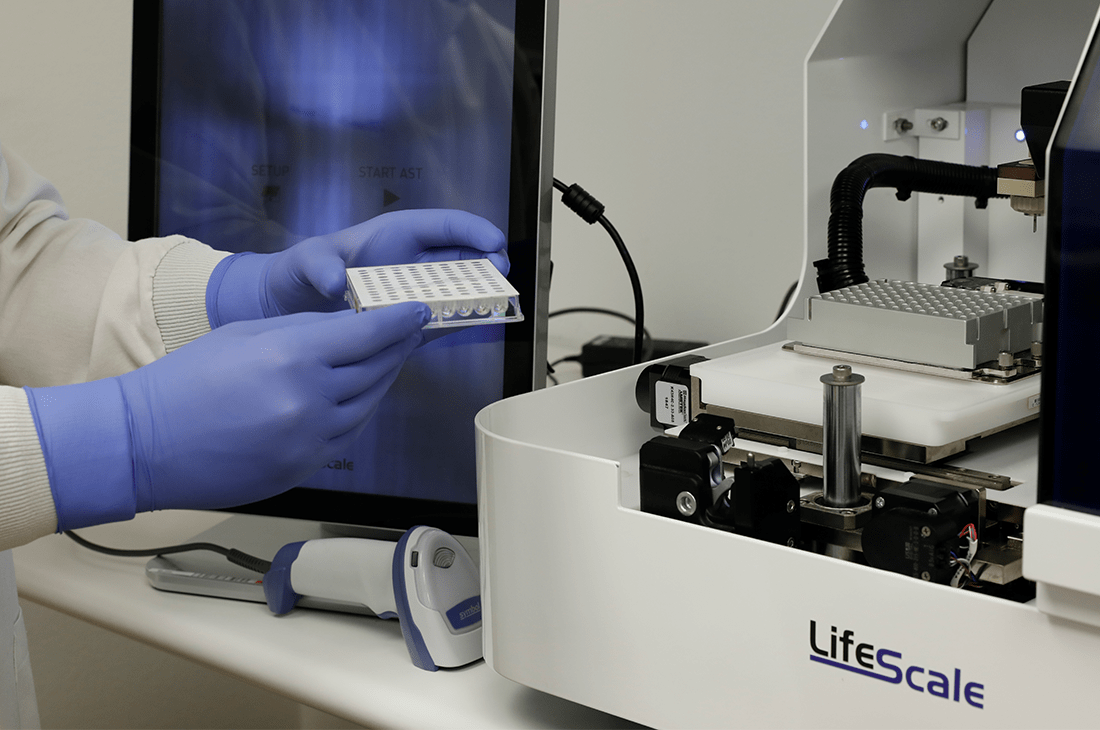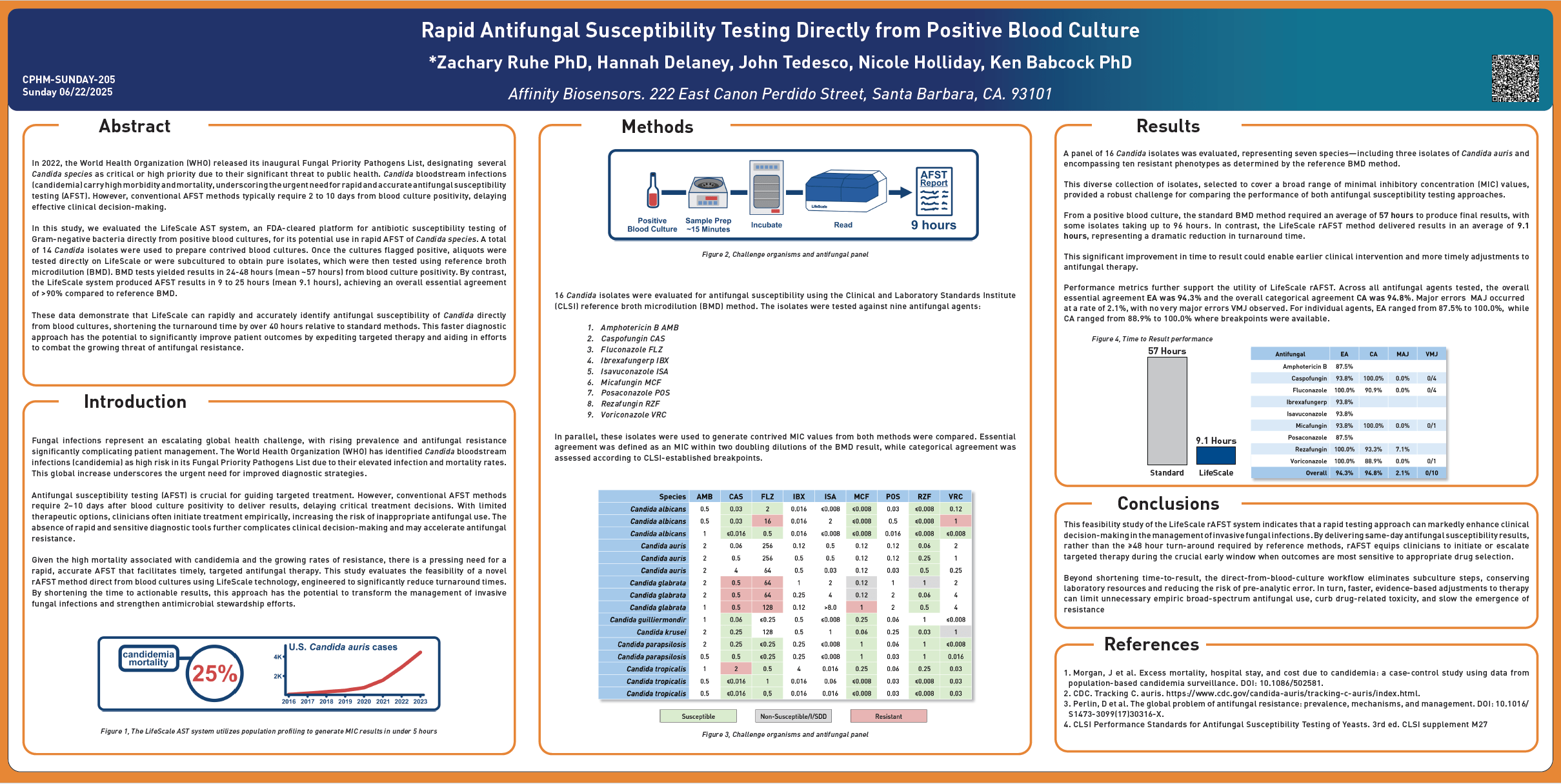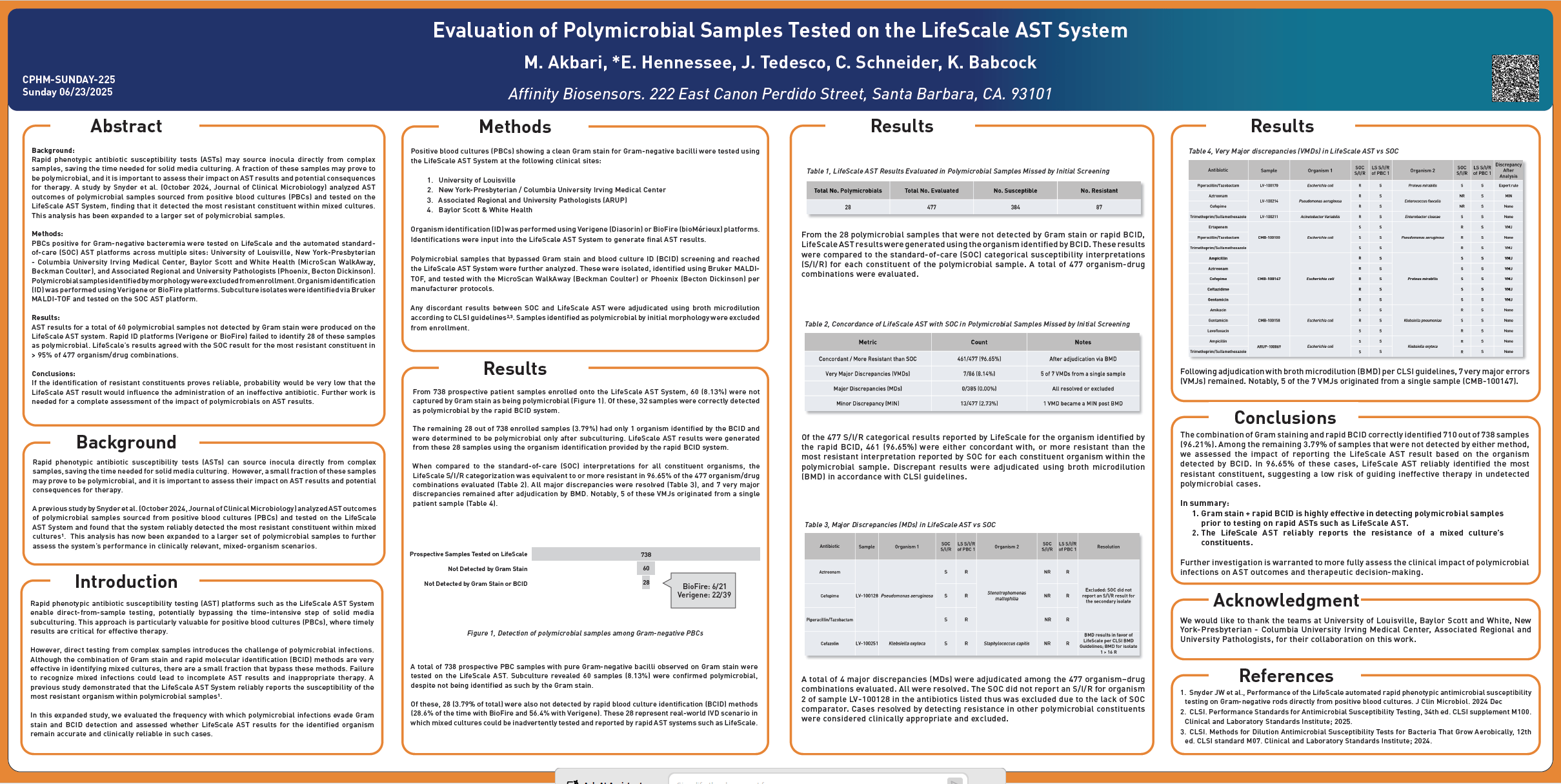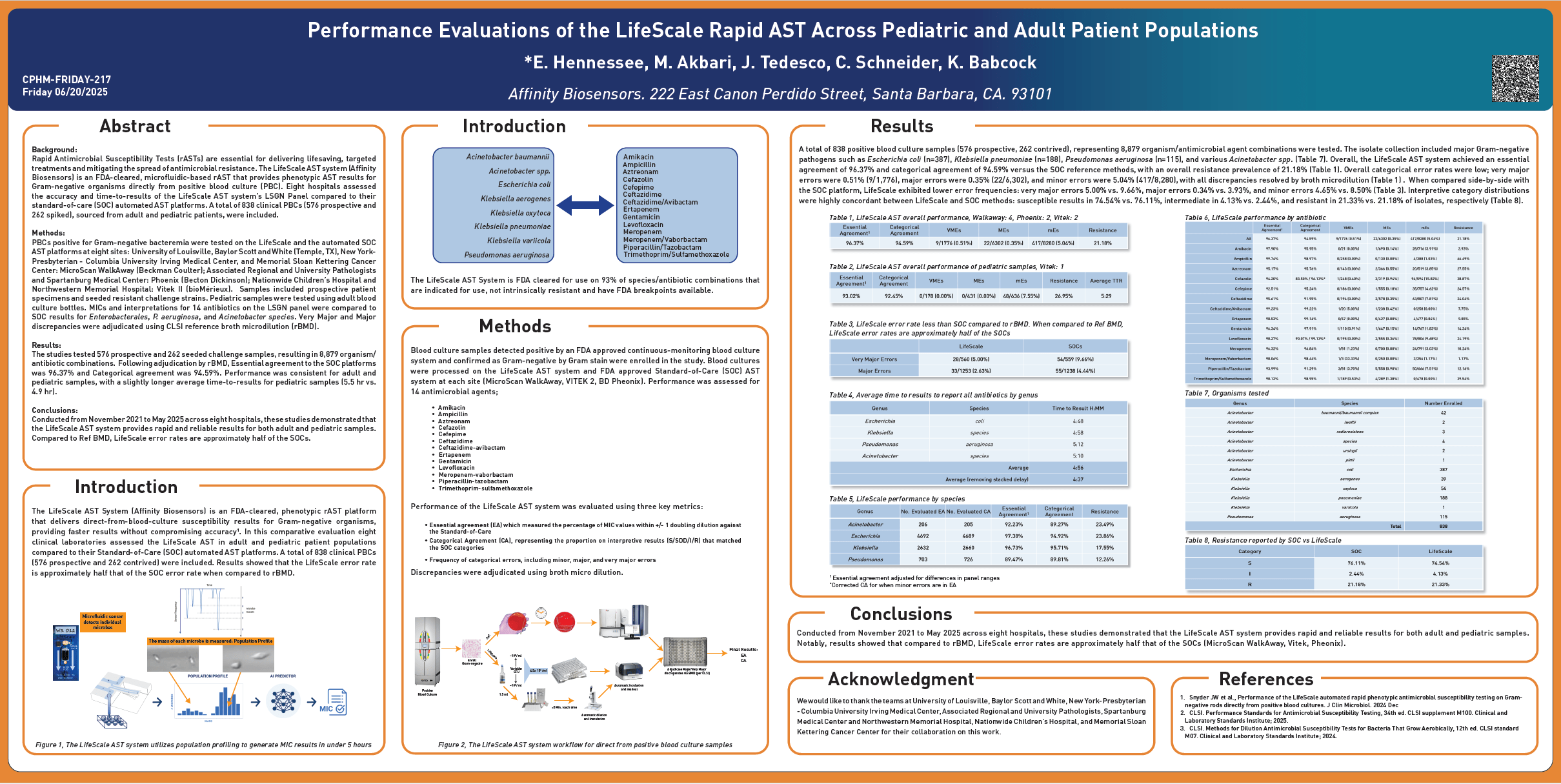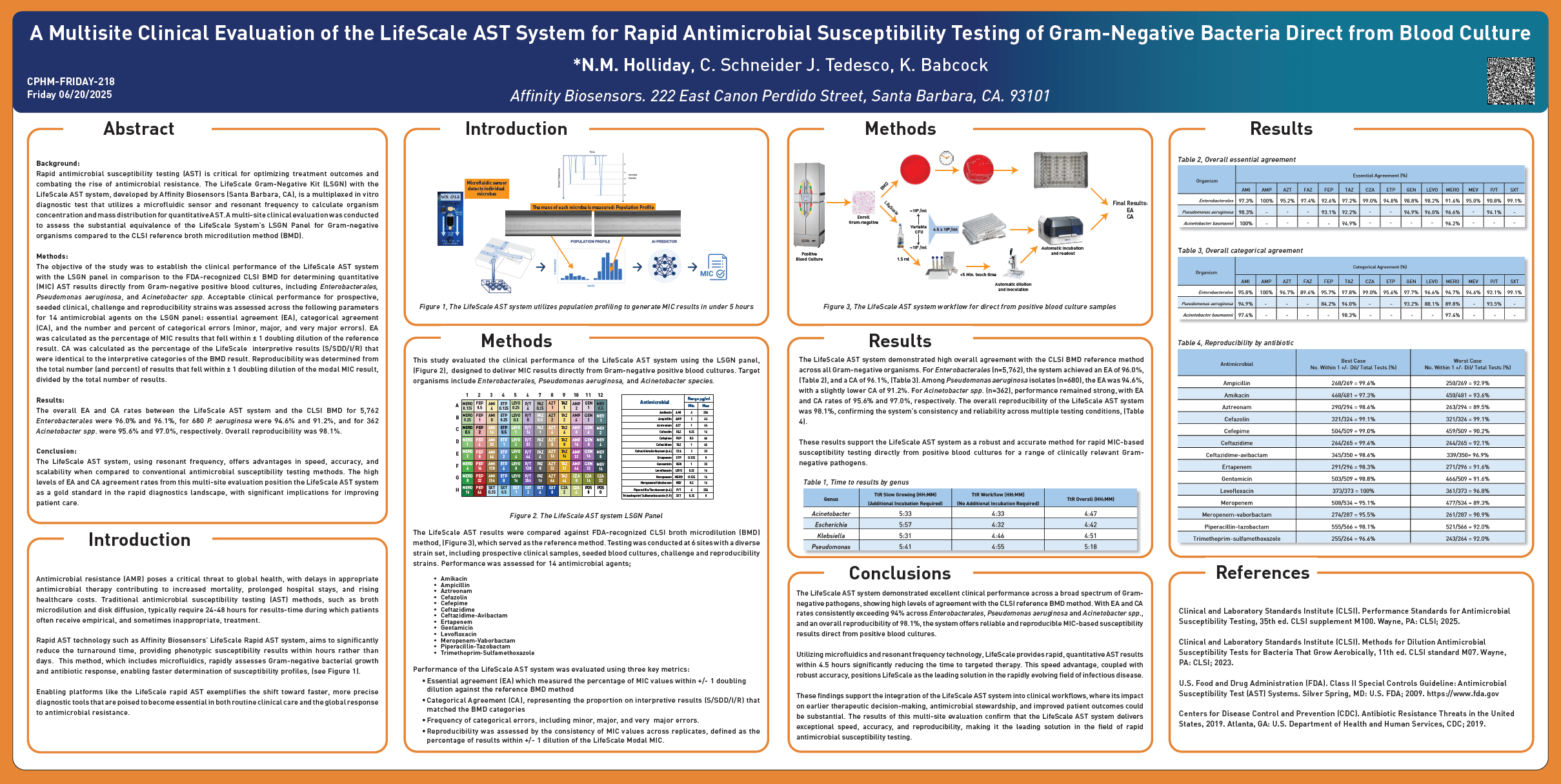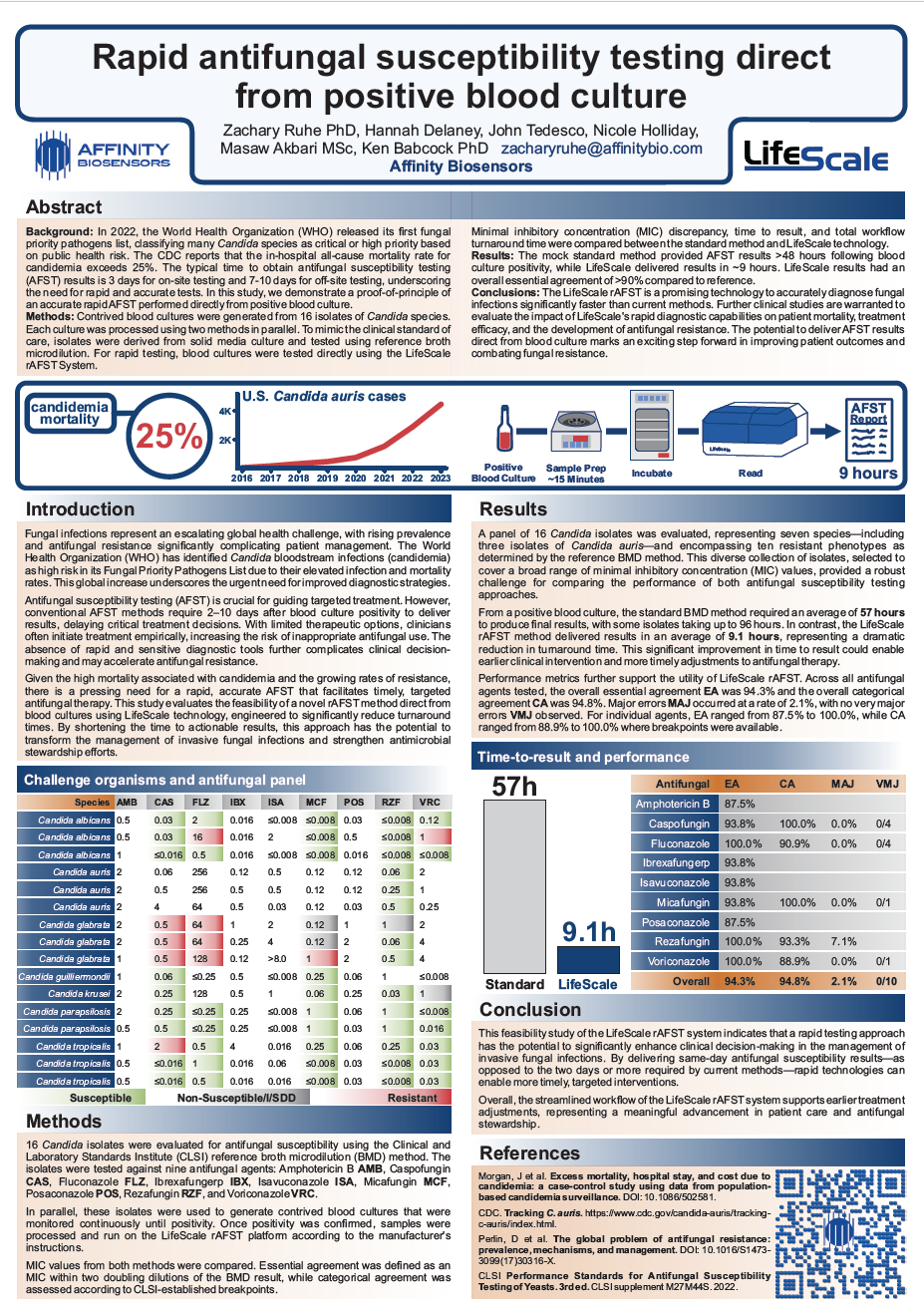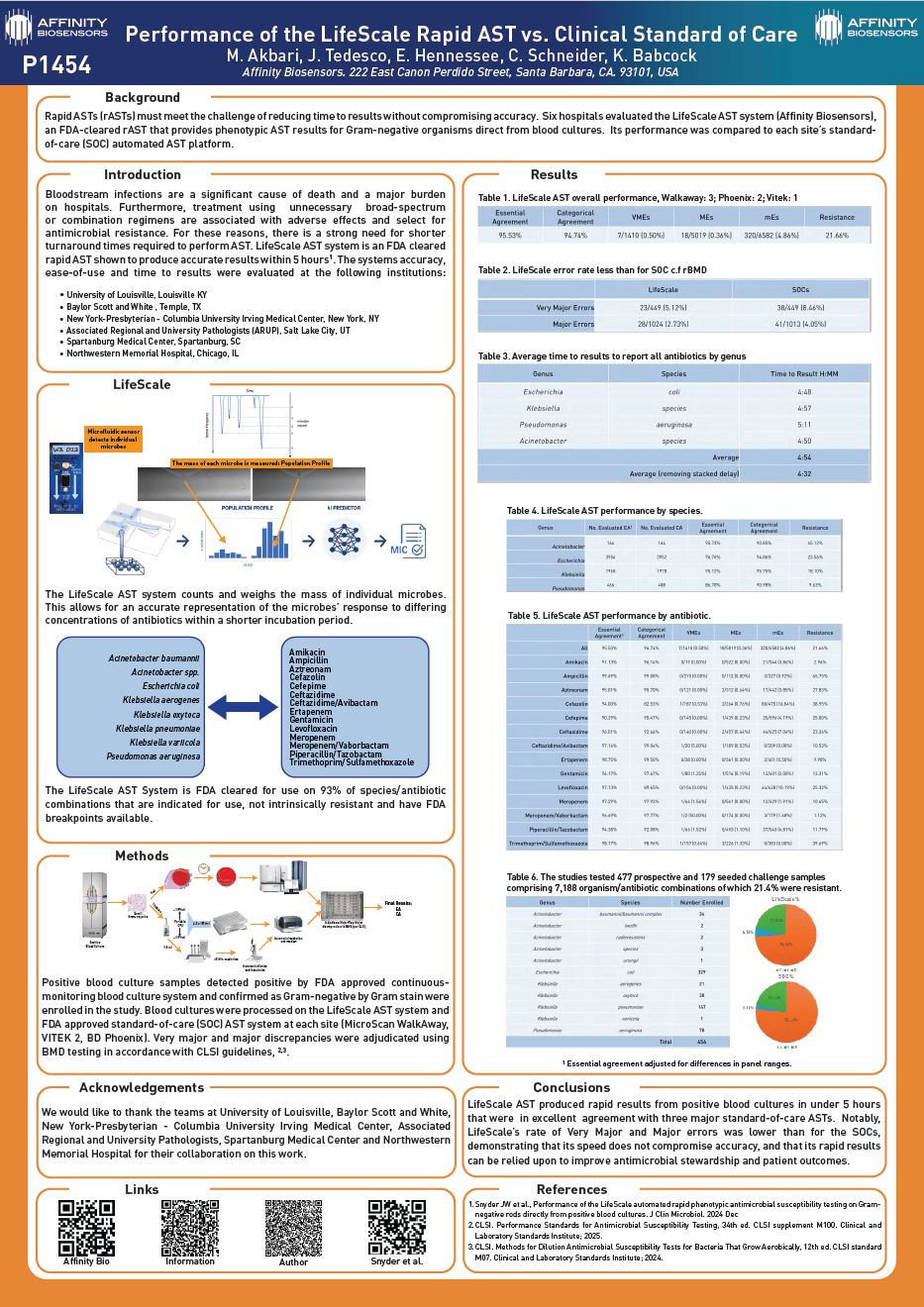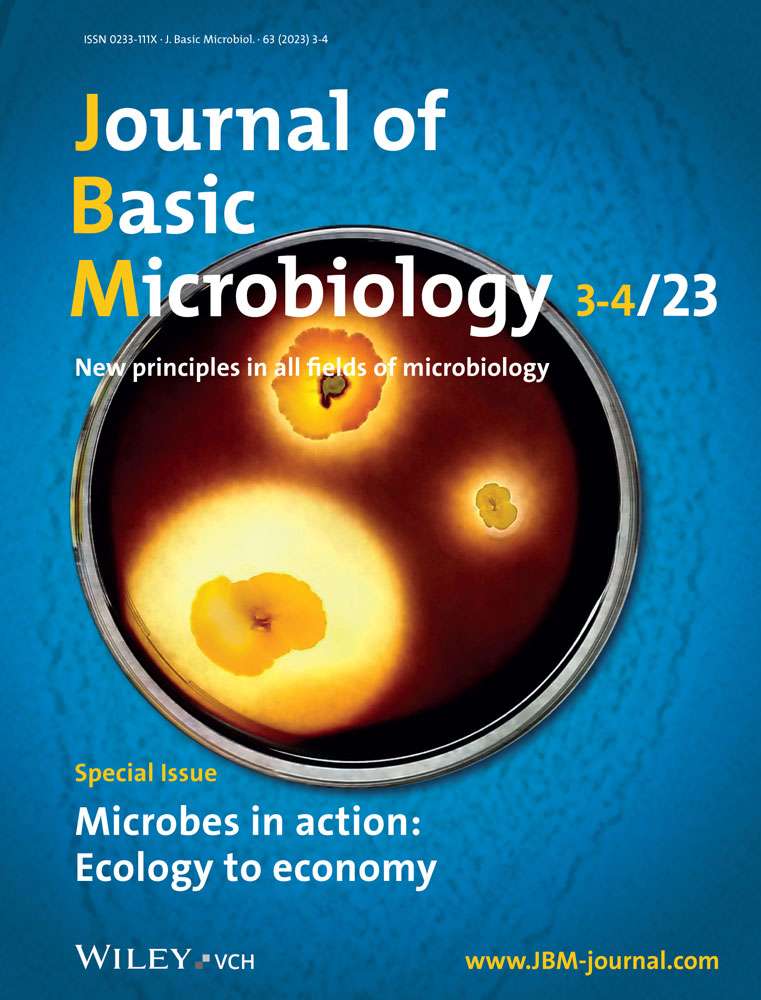LifeScale AST system Receives Third FDA Clearance
Performance of LifeScale AST vs. Clinical Standard of Care
Performance of LifeScale AST vs. Clinical Standard of Care
Performance of LifeScale AST vs. Clinical Standard of Care
Performance of LifeScale AST vs. Clinical Standard of Care
LifeScale AST system Receives Second FDA Clearance
Performance Evaluation of the LifeScale AST rapid Automated Antimicrobial Susceptibility System
Performance of LifeScale AST vs. Clinical Standard of Care
Performance of the LifeScale automated rapid phenotypic antimicrobial susceptibility testing on Gram-negative rods directly from positive blood cultures
LifeScale AST system Receives Second FDA Clearance

